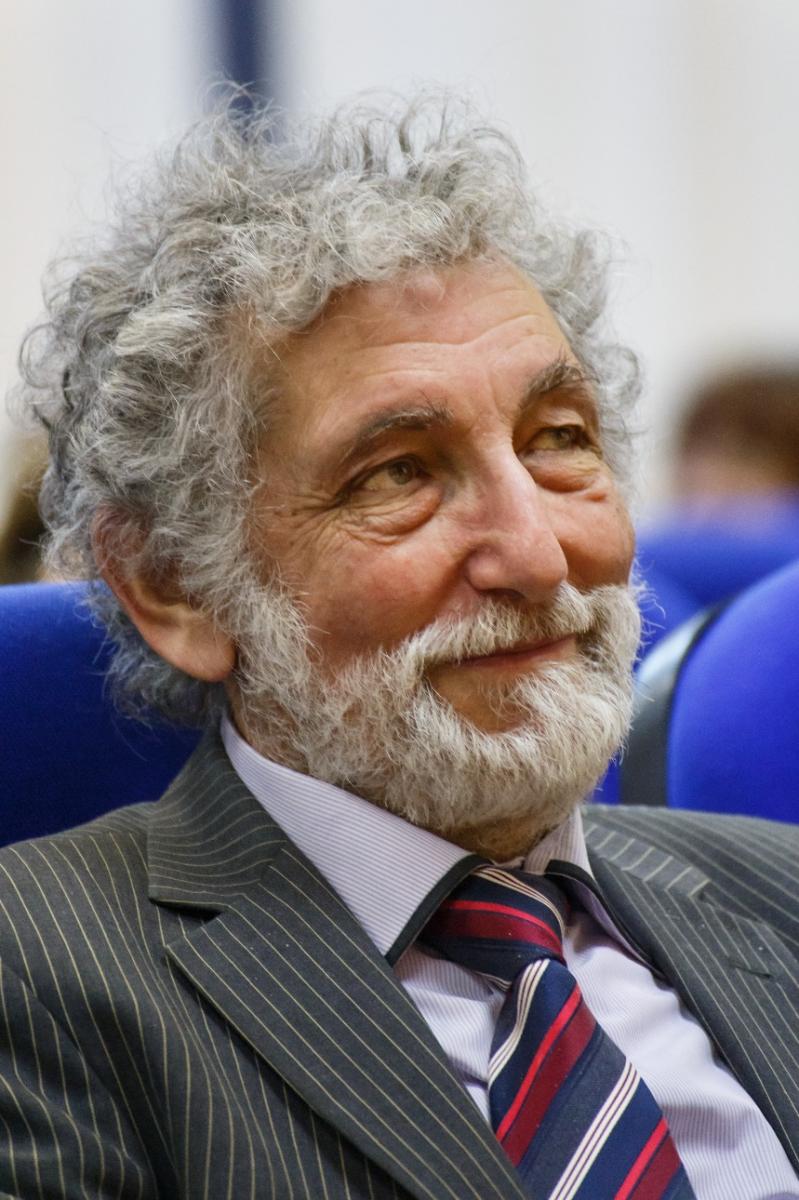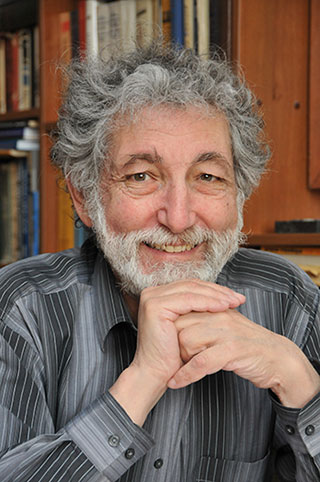
IUSSP member since 1990, Anatole Vichnevski died on 15 January, after combatting Covid-19. He would have turned 86 on 1 April. Up to the moment he was struck by this terrible pandemic, he continued his exceptional engagement as director of the Institute of Demography at the National Research University Higher School of Economics (HSE University -Moscow), one of the best demographic research centres in Russia. His death is an immense loss for Russian demography.
Anatole Vichnevski was born 1 April 1935 in Kharkov, Ukraine, where he completed his university education and became a statistician. After working for the Ukrainian Institute of Statistics in Kiev, he moved to Moscow in the early 1970s. There, he worked for more than ten years at the department of demographic research at the Statistical Institute. He had the opportunity to work closely with many demographers and statisticians who had survived and were witness to Stalin’s purges: Boiarski, Urlanis, Kurman, and Sifman. His contacts with them would profoundly mark him. He later testified to this tragic period for Soviet statistics and demography. During perestroika, he reconstituted a history of Russian and Soviet demography that his colleagues Andreev, Darski, Kharkova, and Volkov had long hidden. Both historian and demographer Anatole Vichnevski drew on conversations with these demographers to illuminate this period's social history.
In 1984, he joined the department of demography at the Moscow Sociology Institute, where he rapidly took advantage of the opportunities perestroika provided to create several demographic centres. The Institute of Demography at the National Research University of the Higher School of Economics (the Vychka) was his last creation. Established in 2006, the institute has become an international reference in Russia, cooperating with some of the most important centres for demographic research in Europe and the United States, including the Max Planck Institute for Demographic Research in Rostock, the London School of Hygiene and Tropical Medicine, and the French National Institute for Demographic Research (INED).
Throughout his career, Anatole Vichnevski was a creator. In collaboration with INED, he launched a Russian version of Population and Society, which was later transformed into the electronic journal Demoscope Weekly. He most recently created another scientific review, Демографическое обозрение/Demographic Review.
Anatole Vichnevski was not just a demographer. He was an intellectual in the French sense of the term and a Russian intelligentsia member, as his many writings confirm. He wrote demographic classics such as “The Demographic Revolution”, published in 1976 and directed a volume on "The Demographic Modernization of Russia, 1900-2000”, which appeared in 2006. His best-known work “The Sickle and the Rouble" was translated into French as “La faucille et le rouble: la modernisation conservatrice en URSS” and published by Gallimard in the prestigious collection, "Bibliotheque des Histoires”. The work remains 20 years after its publication, astonishingly current. His novel, “Lettre interceptées”, published by Gallimard in 2005, reconstructs a tragic family history based on letters, family memories and interviews. It is a wonderfully written essay on the dramatic history of the USSR.
Anatole Vichnevski was a great friend of France with a passion for French demography. Even before perestroika, he engaged with French demographers when doing so was difficult and risky. He quickly became an essential colleague through his resources, knowledge and experience. He cultivated a close relationship with INED, French demography, and France in general through his perfect French mastery. He contributed to the early diffusion of the work of Alfred Sauvy. Through the encouragement of Gérard Calot, then director of INED, exchanges occurred regularly, punctuated by visits, internships, seminars and joint conferences. In Moscow, Anatole Vichnevski rejoined the demography department at the Sociology Institute of the USSR National Academy of Sciences. At the time, Leonid Rybakovski directed the department, strongly supporting international relations. However, in the context of perestroika, the department came in opposition to Anatole Vichnevski, who maintained a scientific rigour that was not always convenient for an increasingly politicised Russian science. Anatole Vichneveski initiated many French-Russian collaborative research projects, sending his young colleagues and students to France to organise several projects. Serge Zakharov and Vladimir Shkolnikov, particularly, continue these collaborations, as do Ioulia Florinskaia, Galina Rakhmanova, Elena Dolgikh, and Alexandre Anichkine. These collaborations led to ongoing projects on mortality, the USSR and Russia's population history, and many other questions.
His meeting with Nathan Keyfitz, first in Moscow in 1985 and then shortly afterwards at IASA in Vienna, also deeply marked him.

Anatole Vichnevski was not only a true researcher but also impassioned by science and scientific truth. He did not hesitate to involve himself in public debates, which led to his being attacked numerous times in a Russia experiencing many challenges these last years. He always defended his positions without compromise, holding above all scientific rigour and an attachment to the highest demographic research level. Proof of this lies in the fact that he became an IUSSP member, remaining a member without interruption until his death, affirming his desire to inscribe his work in a scientific approach, even before perestroika, far from political manoeuvres.
Above all, Anatole Vichnevski was a man of great humanity, a friend, always ready to listen, firm in his opinions, but also attentive to others. He transmitted these qualities to his students and colleagues, who accompanied him in the long process that led to his demographic institute's edification. He also shared these qualities with French colleagues he met with every year in Paris and Moscow, where he was always interested in learning the latest demographic developments. He exuded incredible energy, a passion for understanding, and a total engagement in his convictions. He had many enemies in Russia, eager to impose a political doxa on demography, which he refused in the name of science. As both a researcher and a public figure in demand on radio and television, he received immense respect.
We have lost an immense researcher and humanist and a great friend, and a most endearing, fascinating man.
Translated from the French written by Alain Blum, Maité Ely, France Meslé, Vladimir Shkolnikov, Jacques Vallin, Serge Zakharov
